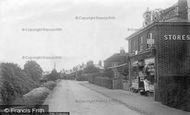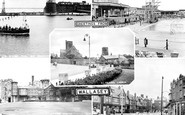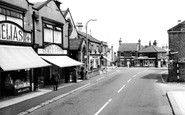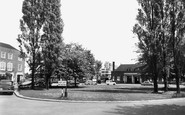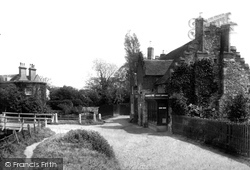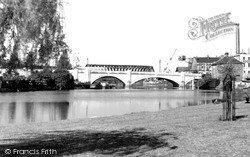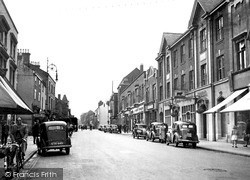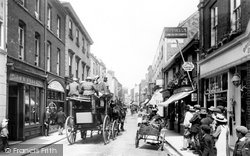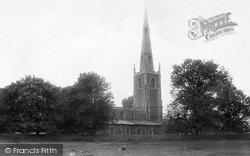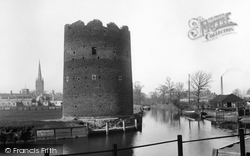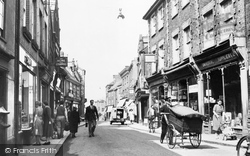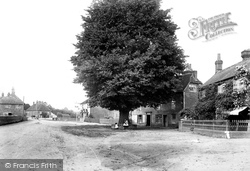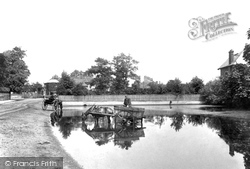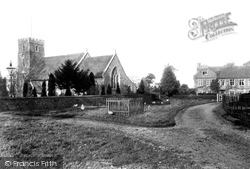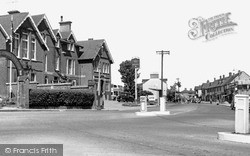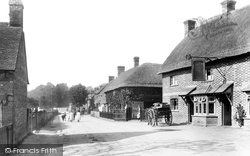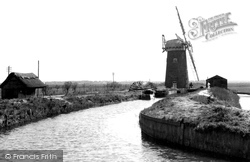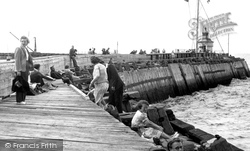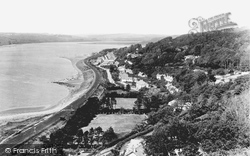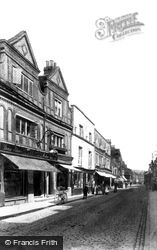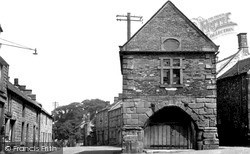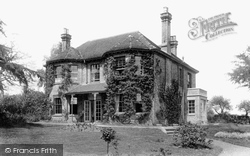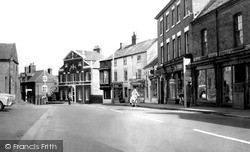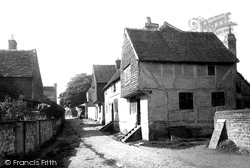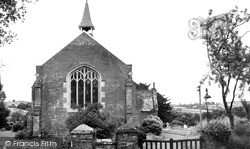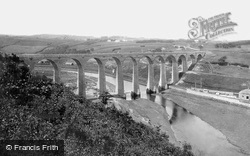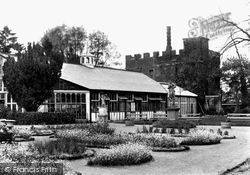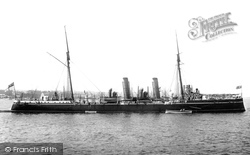Places
Sorry, no places were found that related to your search.
Photos
Sorry, no photos were found that related to your search.
Maps
Sorry, no maps were found that related to your search.
Books
Sorry, no books were found that related to your search.
Memories
655 memories found. Showing results 71 to 80.
War Time In Send
In 1939 on the out break of the Second World War my father was sent to London aerodrome, from Cornwall, to repair bombers and fighter planes. I was born in Cornwall, 12 Dec 1940, and my mother wanting to be with her husband took me to ...Read more
A memory of Send in 1940 by
War Bunker
I remember playing hide and seek with family and friends, one of our hiding places was the war bunker at the park, then when they bricked it up, we were gutted. Every year we go back as my father was from Saron and I always look at the bunker.
A memory of Dinas Dinlle by
Walthamstow In The 1940s
I was born in Thorpe Coombe Hospital in 1943, and lived in Corbett Road until I was seven - until I was 4, at number 37, with my mum, nan and grandpa, two aunts and one cousin; then at number 45, just me and my mum. ...Read more
A memory of Walthamstow by
Wallasey Memories
Hi Lynda, I don't recall your name but recognise many of your memories. I remember Brertons, and I think the general store was Downeys, at least a Mr. Downey ran it. An assistant's name was Dixie. Also there was a shop called ...Read more
A memory of Wallasey in 1940 by
Waiting For The Bus
To the right of this picture, on the High Street was the town hall. For seven years I waited there every morning for the Jump Circular bus, or if I missed it the Rotherham bus to take me into Barnsley where I was at the then ...Read more
A memory of Hoyland in 1961 by
Waddon Etc
I was born in 1948 and lived in Waddon Court Road until 1963. I remember the joy of Waddon Ponds just three doors away, and rRunning the gauntlet with the park keepers such as 'Pegleg', a cruel nickname following the 'legend' of a leg ...Read more
A memory of Croydon by
Wgc Station Memories
Having left London to live in WGC in 1957, our family often went back to visit relatives so that was one of our most regular excursions. In the fifties and sixties we did not have a car and nor did many of our ...Read more
A memory of Welwyn Garden City in 1963 by
Vj Day In Caerau
The present commemorations of VJ Day bring back happy memories of Caerau. I stayed there briefly at that time while my father worked as a locum for a Dr Llewelliyn. I was very young, but I remember being very happy there. I played ...Read more
A memory of Caerau in 1945 by
Visiting Grandma And Grandpa
My grandparents lived in this village, or rather in the lanes round about it. The Tyndale Monument, which we referred to simply as 'The Monument', was accessible only on foot, and in those days was all sealed up as it ...Read more
A memory of North Nibley by
Vine Street Station 1950''s
At the end of Villiers Street and on the opposite side of Whitehall Road was an iron footbridge that crossed the railway line. There was a mechanical signal just below the bridge. In these days when private cars were a ...Read more
A memory of Uxbridge by
Captions
405 captions found. Showing results 169 to 192.
On the banks of the Little Stour, whose waters flow peacefully under the bridge on the left, the small general stores and post office on the right served this little hidden village with its 18th- and 19th-century
This closer picture provides a clearer view of the power station operations.
The High Street (the A6 Leicester/Derby road) becomes Leicester Road as it runs south.
The red sandstone cliffs of East Devon break into the green and pastoral valley of the River Sid; Sidmouth lines the slopes of the gap.
The parish church of St Margaret is built from local brown cobbles. The tower has a fine spire divided by two decorative bands above the spire lights.
The tower was rebuilt in flint faced with brick in about 1390, at the time when the city took it over from the Cathedral Priory.
None of its brick buildings is outstanding yet the total effect is one of pleasing harmony. Many of the shops have retained their Victorian detailing.
The village name used to be spelt as two separate words - North Chapel. When the roads became negotiable, a brick-built toll house was constructed here.
This Thames-side town was once famed for its abbey, now almost entirely vanished; its stone was used for the building of Hampton Court.
This is the manorial core of Saling: the church and the hall. St James' dates from the 12th century, but its early details have been obscured by Victorianisation.
In the foreground stands the arch of the Conservative Club, with the solid brick-built Cambridge Hotel next door.The honey-pot style telegraph poles carry lines to the surrounding buildings.
Chilton Foliat is at the eastern extremity of the county, on the river Kennet. Here, a horse waits patiently outside the thatched pub for the return of his driver.
Here we see a typical Broadland brick tower drainage mill. It has four patent sails and a fantail, and drove a turbine pump.
The Gorleston Pavilion (left), always a popular venue with its dance hall and theatre, is hosting the summer show— The Revumorists.
The village stands on the east side of the Towy where the river breaks out to sea through a widespread expanse of sandbanks at low tide.
On the left of the cobbled High Street, notably devoid of any traffic, is Edward's Drug Store, which later passed to Boots. The building, in brick and stone, dates from the late 17th century.
The 17th-century Old Market House at Winster was the first property to be acquired by the National Trust in the Peak District, in 1906.
The old rectory, of warm red brick, with its tall chimneys and light-gathering broad bay windows has creeper running rampant all over it.
Remnants of the Earl of Leicester's castle which was destroyed in the early 13th century can still be seen in this rather dismal but interesting village.
Cobbles, brick, timber and tile - an enchanting corner of Bletchingley over one hundred years ago.
The church, up a lane on the north side of the village, is a haven from the busy A38 which passes through between Saltash and Liskeard.
The viaduct was originally erected for the Scarborough and Whitby Railway. The first brick was laid in 1882 and the first locomotive crossed the thirteen-arched viaduct in 1884.
Rye House 1904 The front aspect of the mid-15th-century red brick gatehouse of Rye House, the scene of the ill-fated 1683 Whig conspiracy to ambush Charles II as he returned to London from Newmarket
Laid down at Sheerness in 1895, engined by Clydebank, and completed in 1897, 'Pelorus' was the lead ship for a class on the Cape Station before transferring to the East Indies.
Places (0)
Photos (0)
Memories (655)
Books (0)
Maps (0)

